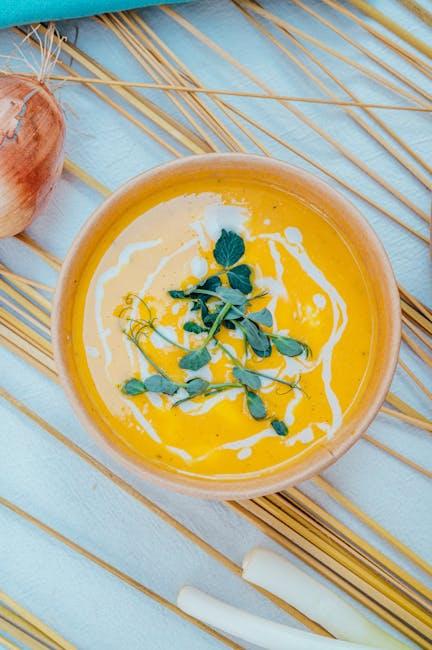In an age where environmental consciousness is more critical than ever,the concept of zero waste has emerged as a guiding principle for those looking too minimize their ecological footprint. The journey toward sustainable living can feel overwhelming, often leaving individuals unsure of where to start.Enter the zero-waste starter kit—a thoughtfully curated collection of essentials designed to help participants embrace eco-pleasant practices with ease and confidence. This article will explore the components of these kits, offering insights into how simple, everyday choices can collectively make a notable impact. Join us as we delve into the world of zero waste, highlighting the practical tools and resources that can transform how we consume and live, all while nurturing our planet for generations to come.
Exploring the Concept of zero-Waste Living
Zero-waste living is more than just a trend; it’s a sustainable lifestyle choice that encourages individuals to minimize waste and make conscious decisions about the products they consume. At its core, this concept promotes the idea of reducing, reusing, and recycling, but it also embraces practices like composting and sourcing from local producers. By exploring this way of living, individuals contribute to a healthier planet while fostering a deeper connection with their surroundings. As you embark on your zero-waste journey, consider adopting the following essentials that can help you transition seamlessly:
- Reusable shopping bags: A fundamental item for reducing plastic use.
- Beeswax wraps: A great option to single-use plastic wraps.
- Stainless steel or glass containers: Perfect for food storage and leftovers.
- Bulk bins: Ideal for buying grains,nuts,and spices without packaging.
- Compost bin: Essential for organic waste management.
To further streamline your zero-waste efforts, integrating a variety of DIY alternatives into your daily routine can reinforce your commitment to sustainability.Simple items crafted from eco-friendly materials can replace disposable products, lessening your ecological footprint. As you gather these tools,ponder the meaning of mindfulness and intentionality in every purchase you make. Here’s a swift comparison of common disposables and their eco-friendly replacements:
| Disposable Item | Eco-Friendly Replacement |
|---|---|
| Plastic straws | Metal or bamboo straws |
| Paper towels | Reusable cloths |
| Plastic water bottles | Reusable water bottles |
| Takeout containers | Bento boxes or glass containers |
| Single-use razors | Safety razors |

Must-Have Essentials for Your Zero-Waste Starter Kit
Creating a zero-waste starter kit is an exciting journey towards sustainable living. Begin with reusable shopping bags made from organic cotton or recycled materials. These not only reduce plastic waste but also add a touch of style to your errands. Complement your shopping bags with stainless steel or glass food containers for meal prep and leftovers, ensuring that you’ll never need to rely on single-use plastics again. Don’t forget beeswax wraps as a fabulous alternative to cling film; these are perfect for covering bowls or wrapping snacks while keeping your food fresh.
Another essential is a reusable water bottle, which helps you stay hydrated while minimizing plastic waste. Choose one that’s insulated to keep your drinks at the desired temperature. For personal care, consider a bamboo toothbrush and refillable safety razor to replace disposable plastic options. You can enhance your cleaning routine with eco-friendly cleaning cloths made from natural fibers and homemade multipurpose cleaner in a glass spray bottle. Here’s a simple table to recap these essentials:
| Essential Item | Purpose |
|---|---|
| Reusable Shopping Bags | Eliminate plastic bags |
| Stainless Steel Containers | Store food without plastics |
| Beeswax Wraps | cover food naturally |
| Reusable Water Bottle | Stay hydrated sustainably |
| Bamboo Toothbrush | Reduce plastic in personal care |
| Refillable Safety Razor | Minimize shaving waste |
| Eco-Friendly Cleaning Cloths | Clean without disposable items |
| Homemade Multipurpose Cleaner | Clean sustainably |

Tips for Transitioning to a Sustainable Lifestyle
Embracing a sustainable lifestyle can feel daunting, but transitioning doesn’t have to be overwhelming. Start small by incorporating eco-friendly swaps into your daily routine. Such as,replace single-use plastic bags with reusable tote bags,and swap out disposable coffee cups for a stainless steel or glass travel mug. Consider incorporating these items into your daily habits:
- Reusable water bottle
- Beeswax wraps instead of plastic wrap
- Bamboo cutlery for on-the-go meals
- Compostable plates for entertaining
Next, aim to educate yourself on the principles of zero waste by connecting with online communities or resources. Engaging with others on similar journeys not only provides support but also encourages accountability. You might find it helpful to keep a sustainable checklist to track your progress, ensuring you stay motivated. Below is an example of essential items you might wont to include in your starter kit:
| Item | Purpose |
|---|---|
| Reusable shopping bags | Eliminate plastic bags |
| Glass storage containers | Reduce food waste and plastic use |
| Metal straws | Avoid single-use plastic straws |
| All-natural cleaning products | Minimize chemical exposure and waste |

Incorporating Zero-Waste Practices into Daily Life
Living a zero-waste lifestyle doesn’t mean making radical changes overnight; instead, it’s about integrating small, impactful practices into your daily routine. start your day with a reusable coffee cup for your morning brew, which can drastically reduce the number of disposable cups ending up in landfills. When heading out for groceries, bring along reusable bags made from durable materials, and consider using a mesh produce bag for fruits and vegetables. You’ll also want to transition to bamboo utensils and a stainless steel straw for on-the-go meals, reducing single-use plastics in your diet.
It’s equally crucial to focus on how you handle waste at home. Setting up a composting station for food scraps can significantly cut down your garbage, while a recycling center can ensure that materials are sorted and processed correctly. Consider investing in refillable products like liquid soaps and detergents, which can often be found at local health stores or via online suppliers. Below is a simple table showcasing some eco-friendly alternatives to common household items:
| Standard Item | Zero-Waste Alternative |
|---|---|
| Plastic Water Bottle | Stainless steel Bottle |
| Disposable Razors | Safety Razor |
| Paper towels | Cloth Wipes |
| Plastic Food Wrap | Beeswax Wraps |
To Conclude
As we wrap up our exploration of zero-waste starter kits, it’s clear that embarking on an eco-friendly journey doesn’t have to feel overwhelming or unattainable. By integrating just a few essential items into your daily routine, you’re not merely adopting a trend; you’re participating in a larger movement toward sustainability and mindfulness. Each reusable bag, bamboo toothbrush, and stainless steel straw serves as a small yet impactful reminder of our collective responsibility to the planet.
Transitioning to a zero-waste lifestyle is a personal journey, one that demands patience, creativity, and a willingness to adapt.Start small, embrace the learning curve, and celebrate your progress—no matter how minor it seems. Remember, every step counts, and together, we can cultivate a future that honors the Earth and fosters a deeper connection with our surroundings.
so, whether you’re gathering supplies for your own starter kit or inspiring others to do the same, keep in mind that each choice you make has the power to spark change. Let’s redefine what it means to live sustainably,one conscious decision at a time. Your zero-waste journey begins now—welcome to the movement!




